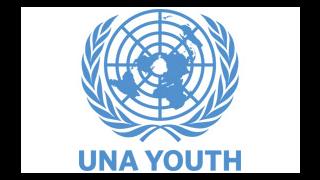
Since 1945, a host of treaties, conventions and agreements have been created under international law. The UN has registered over 200,000 international agreements and oversees more than 550 multilateral treaties. Given the UN’s wide-ranging remit, these conventions are incredibly diverse: from providing lifesaving assistance to the governance of celestial bodies. See how many you know of the ten examples below:
1. Food Assistance Convention. Entry into force 2013, eight states parties.
The Convention’s stated objectives are “to save lives, to reduce hunger, improve food security and improve the nutritional status of the most vulnerable populations”. States parties also agree to make a minimum annual commitment.
- See more at: http://www.una.org.uk/magazine/summer-2013/10-conventions-you-may-never-have-heard#sthash.sUyLy10u.dpuf
1. Food Assistance Convention. Entry into force 2013, eight states parties.
The Convention’s stated objectives are “to save lives, to reduce hunger, improve food security and improve the nutritional status of the most vulnerable populations”. States parties also agree to make a minimum annual commitment.
- See more at: http://www.una.org.uk/magazine/summer-2013/10-conventions-you-may-never-have-heard#sthash.sUyLy10u.dpuf
1. Food Assistance Convention. Entry into force 2013, eight states parties.
The Convention’s stated objectives are “to save lives, to reduce hunger, improve food security and improve the nutritional status of the most vulnerable populations”. States parties also agree to make a minimum annual commitment.
2. Convention against Corruption. Entry into force 2005, 167 states parties.
This Convention sets out to improve domestic measures and international coordination in tackling corruption and organised crime.
3. Convention on the Law of the Non-Navigational Uses of International Watercourses. Not yet in force, 30 states parties.
Establishing rules and basic standards on the use, management, and protection of international watercourses, this is the only treaty governing shared freshwater resources that is of universal applicability.
4. Convention on Consent to Marriage, Minimum Age for Marriage and Registration of Marriages. Entry into force 1964, 55 states parties.
This Convention states that marriage requires the free and full consent of both parties and that each is entitled to equal rights during marriage and at its dissolution.
5. Agreement on the Importation of Educational, Scientific and Cultural Materials. Entry into force 1952, 100 states parties.
This Agreement promotes the free exchange of ideas and knowledge through the free circulation of publications, art works, educational, scientific and cultural material.
6. Protocol IV on Blinding Laser Weapons to the Convention on Prohibitions or Restrictions on the Use of Certain Conventional Weapons which may be deemed to be Excessively Injurious or to have Indiscriminate Effects. Entry into force 1998, 101 states parties.
Prohibits the use of laser weapons specifically designed to cause permanent blindness “as a method of warfare” and the transfer of such weapons to any state or nonstate entity.
7. Marrakesh Treaty to Facilitate Access to Published Works for Persons who are Blind, Visually Impaired or otherwise Print Disabled. Not yet in force, 51 signatories.
Adopted on 27 June 2013, this Treaty seeks to improve access to books for millions of people who are blind or visually impaired. Currently less than 5% are made available in accessible formats.
8. Convention on the Non-applicability of Statutory Limitations to War Crimes and Crimes Against Humanity. Entry into force 1970, 54 states parties.
Article 1 of the Convention provides that no statutory limitation shall apply to war crimes and crimes against humanity, irrespective of when the acts occurred.
9. Agreement governing the activities of states on the moon and other celestial bodies. Entry into force 1984, 15 states parties.
Also known as the ‘Moon Treaty’, the Agreement states that all activities taking place on the moon should be governed by international law. None of the states parties have yet been in space.
10. Convention against Illicit Traffic in Narcotic Drugs and Psychotropic Substances. Entry into force 1990, 188 states parties.
Setting out measures for international efforts to tackle drug trafficking, the Convention includes provisions against money laundering.
Photo: © Daniel R. Blume Dbuo Photography
2. Convention against Corruption. Entry into force 2005, 167 states parties. - See more at: http://www.una.org.uk/magazine/summer-2013/10-conventions-you-may-never-have-heard#sthash.sUyLy10u.dpuf

















